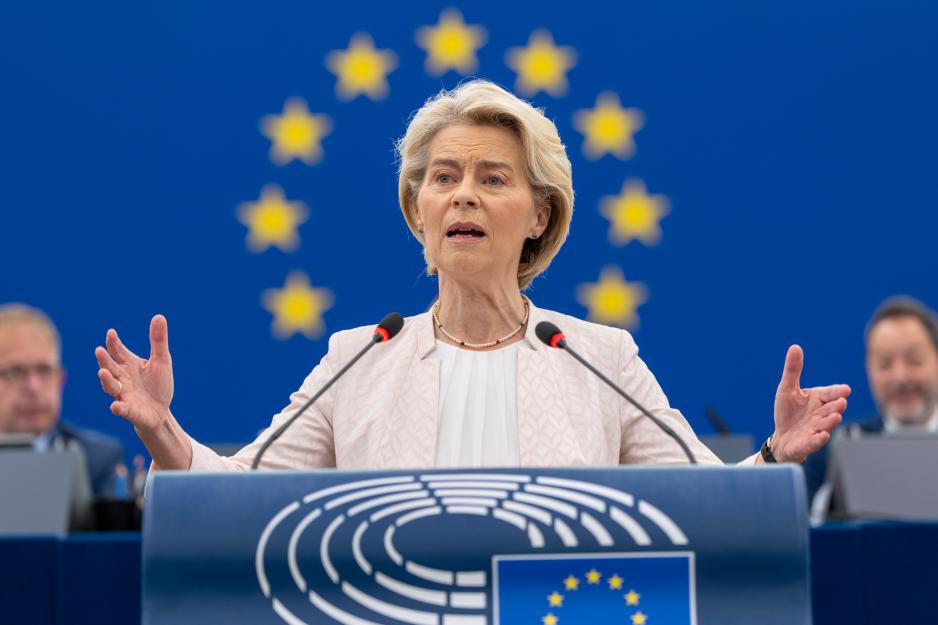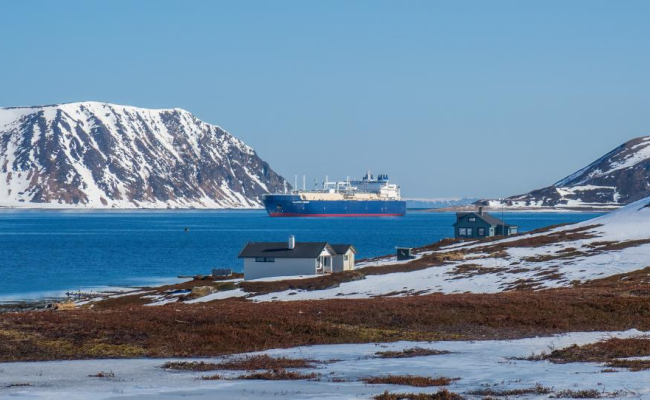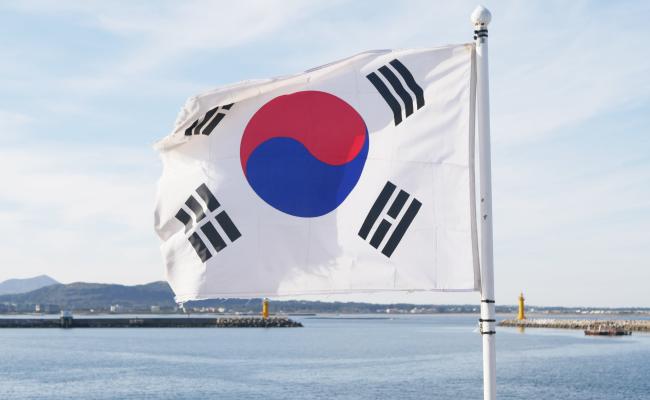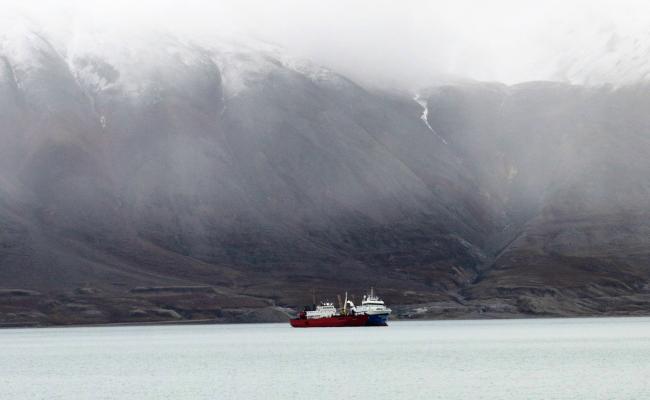“Time to Turn off the Tap” on Russian LNG Says EU After Trump Pressure

European Commission President Ursula von der Leyen in front of the European Parliament in July 2024. (Source: EP under CC-BY-4.0: © European Union)
Trump's comments trigger renewed efforts by Brussels to phase out Russian liquefied natural gas imports. EU officials now indicate their goal is to ban the supercooled gas by January 2027, a full year ahead of a previously proposed timeline. It is unclear if the Trump Administration will also reengage in sanctioning the Russian LNG sector, it has given a pass to Chinese buyers in recent weeks.
Days after U.S. President Trump chastised the European Union for its continued imports of Russian liquefied natural gas (LNG), the bloc’s political leaders have said they are considering bringing forward a planned ban by one year.
Much of the Russian supercooled gas comes from the Arctic and passes through Norwegian waters en route to EU countries.
Earlier this year the European Commission had announced a tiered plan to phase out the fuel with short-term contracts to end at the conclusion of 2025. Long-term import agreements had been set to continue for another full two years until January 1, 2028, much to the disappointment of activists and supporters, including Ukrainian officials, of a more rapid schedule.
19th sanctions package
Now President Trump’s erratic political style appears to have infused new energy into the debate. Across the Commission officials expressed support to cut off access to the European market by the beginning of 2027.
The accelerated timeline could become formalized in the 19th sanctions package currently being discussed between the Commission and EU governments. It does, however, require unanimous agreement among all member states. In the past those states still rely substantially on Russian LNG or pipeline gas, including France, Spain and Belgium for the former, and Hungary and Slovakia for the latter, urged for more time to phase out Russian imports.
We are banning imports of Russian LNG into European markets
"The revenues from fossil fuels sustain Russia's war economy. We want to cut these revenues," said European Commission President Ursula von der Leyen.
"So we are banning imports of Russian LNG into European markets. It is time to turn off the tap,” she asserted.
Will the EU act?
Von der Leyen’s comments are among the strongest indications yet that the bloc may finally achieve unanimous approval to move away from Russian LNG; a fuel which has sent dozens of billions of Euros to the country since the beginning of the full-scale invasion.
It is unclear if EU action on this front would subsequently entail a re-engagement of sanctions on the part of the U.S.
The Trump Administration has thus far given Russia and China a free pass on sanctioned exports from the Arctic LNG 2 facility. In recent weeks the Beihai terminal in southern China has received five deliveries after more than a year’s delay.
Also read (the text continues)
While the Biden Administration kept up the pressure on the Russian LNG sector even during its outgoing days in January 2025, its successor has not announced any measures against the sector since entering office.
Trump’s comments on the EU’s LNG imports seems to have spurred a policy shift in Brussels, similar to how his repeated calls for an increase in defense spending above the old NATO target of 2 percent has seen military budgets rise substantially across much of the continent.
Increased global supply
Broader market conditions may also play a key role in the EU’s ability to move up the proposed ban. After years of globally tight LNG supplies, the sector is expected to experience a glut in the coming years as a number of projects come online. Weak demand in China has also eased global supply constraints.
Currently the EU covers around 19 percent of its gas needs via Russian pipeline supplies and LNG. Those imports could be shifted to U.S. suppliers becoming a policy tool in the broader discussions on U.S.-EU tariffs.
Under the recently finalized U.S.-EU trade deal the bloc has agreed to purchase $750 billion of energy from U.S. suppliers; a figure which may be hard if not impossible to reach. Shifting Russian supplies to the U.S. would go a long way in fulfilling the pledge.




